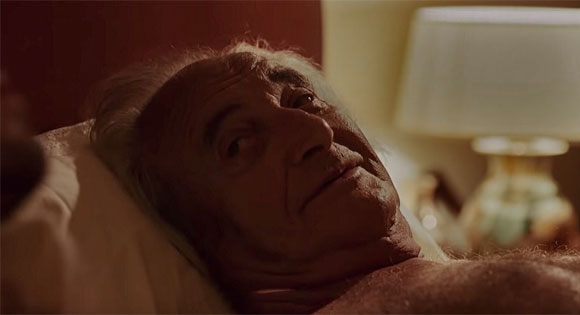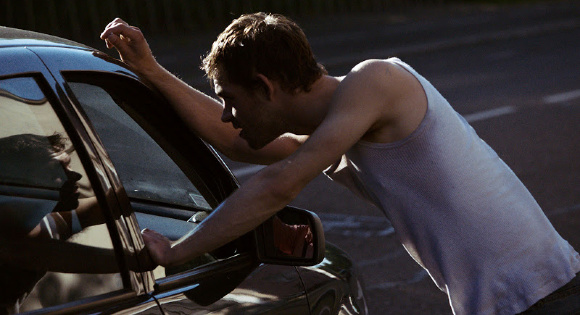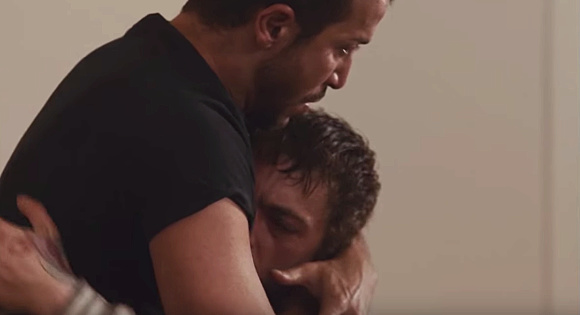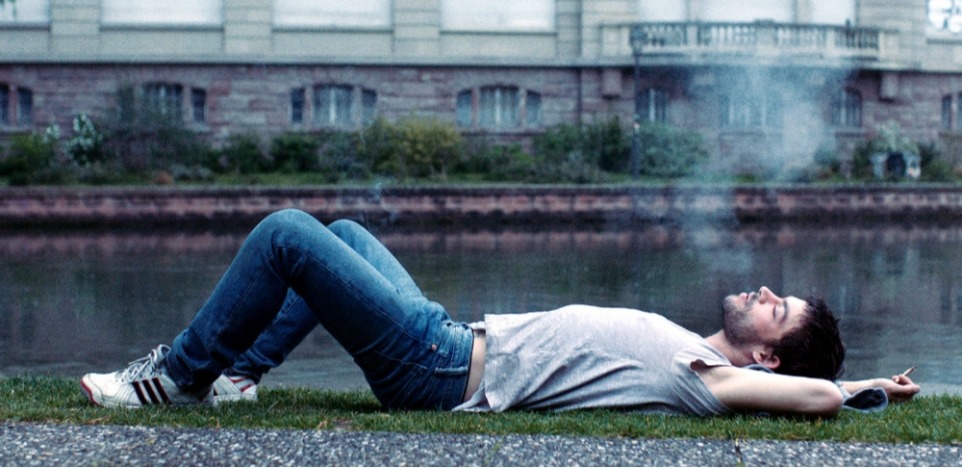In a surprisingly quiet scene part way through Camille Vidal-Naquet’s visceral and riveting debut feature Sauvage/Wild, 22-year-old sex worker Leo (Félix Maritaud) ends up in bed with an elderly client. After fumbling together for a few moments, the client decides he’d simply like to be held, and as the two lie together, the client softly says, “At night, sometimes I wake, and I don’t know where I am.”

This quietly earthshaking confession from a lonely client is also the best encapsulation of Leo’s own existence. Leo hustles regularly, picking up tricks on the street, where he also pursues a strangely supportive sort of community with a group of scrappy male sex workers who have built a brand of trust, even as none of them seem to trust anyone. Leo invites clients to call him by whatever name they desire, disappearing into others’ ideas of who he is and who he could be. Shackled with an ever-worsening cough, yet still willing to kiss his clients (a taboo among his fellow hustlers), Leo is on an earnest search for connection, even as he seems unsure of how such a connection would help his predicament.

Sauvage/Wild is more a collection of vibrant vignettes than it is a plot-driven film, and this style choice adds particular potency to its themes. Leo is drifting, often moving in a quiet daze from moment to moment, interrupted by spikes of violence and instances of surprising intimacy. None of these interruptions ever last long, just enough to bruise the body or the heart, and Leo is left to wander, looking for love in a world where lust is the only valued commodity.
Vidal-Naquet spent several years communing with sex workers, listening to their stories and learning their dreams and realities, in order to craft the world of Leo and his fellow hustlers. This careful work has paid off, giving Sauvage/Wild an air of authenticity that underlines Leo both as a unique character and as a symbol of a profession often relegated to the shadows or to too-saccharine or too-dour film representations.

Leo is no victim, martyr, or benevolent icon. Sure, he seeks connection in many of the wrong places, including in the arms of the gruffly magnetic hustler, Ahd (Eric Bernard), who pushes often Leo’s advances away, but sometimes gives in, offering Leo just enough attention to keep him interested. At one poignant point, Ahd looks sincerely at Leo and offers an adoring assessment, “You were born to be loved,” only to follow it up by dismissing him again and disappearing. And Leo’s varied relationships with other men follow similar patterns, a push-me-pull-you dance of attraction and acrimony.
In fact, the world of Sauvage/Wild is almost entirely populated by men. This creates a throbbing sense of masculine danger that juxtaposes with Leo’s gentle, wide-eyed spirit in ways that deeply affect the heart more than they titillate the libido. That said, sex is definitely Leo’s business, and the frank, sometimes graphic depictions of sensuality and degradation move between gorgeous and grotesque, and will definitely shock the faint of heart. But these scenes never are gratuitous. Instead, they feel completely necessary, intensely real, and treated with respect for truthfulness. At times, the film is like a shattering documentary; the performances and direction are that fully-lived, and the threat of a dreaded, especially violent client simply called “The Pianist” (Jean-François-Charles Martin) adds an almost unbearably real sense of unease.

But even amongst the brutality, scenes of tenderness, like that with the aforementioned elderly client, abound. One of the only female presences in the film, a sensitive doctor (Marie Seux) who tries to get Leo on the right track to health after hearing his hacking cough, brings a moment of gravity that halts the film in its tracks, revealing layers to Leo’s character that are heartstopping in beauty. And a developing relationship with an older man named Claude (Philippe Ohrel) prompts Leo to truly name and pursue what he wants out of life (though the final answer might be shocking to most audiences).
By the film’s end, the title Sauvage/Wild takes on multiple meanings, several of them stunningly spiritual. For a story that never shies away from the brutal truths of lives pushed to the margins, Leo’s developing sense of self-possession and his naturally contradictory balancing of connection and freedom feels uncommonly empowering. This is a film that might appear on the surface to revel in beautiful bodies being forced into harrowing ordeals, but Sauvage/Wild, through its sheer refusal to judge, damn, or save Leo, becomes an odd rallying cry for independence, sometimes too loud, sometimes too soft, but always filled with invigorating honesty, revealing that Leo, no matter how much he strays, is always on his way to becoming exactly who he is.
